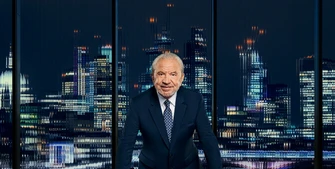David Fincher has no idea why Fight Club's ending was changed by Chinese censors
'Fight Club' filmmaker David Fincher doesn't know why the 1999 movie's ending was changed by Chinese censors before they reversed the decision.

'Fight Club' director David Fincher has no idea why the movie's ending was changed by Chinese censors.
The 1999 movie was altered for its airing on streamer Tencent Video - although it has now been restored to its original form - and the filmmaker admitted the situation "made no sense" to him.
He told Empire magazine: "Here’s what we know. A company licensed the film from New Regency to show it in China, with a boilerplate [contract]: ‘You have to understand cuts may be made for censorship purposes.’
"No one said, ‘If we don’t like the ending, can we change it?’ So there’s now a discussion being had as to what ‘trims’ means.
"If you don’t like this story, why would you license this movie? It makes no sense to me when people go, ‘I think it would be good for our service if we had your title on it… we just want it to be a different movie.’
"The f****** movie is 20 years old. It’s not like it had a reputation for being super cuddly."
The 59-year-old director noted how the movie's altered ending was actually quite close to Chuck Palahniuk's original 'Fight Club' novel, which sees the Narrator - played by Edward Norton in the movie adaptation - in an asylum after surviving a failed suicide attempt when Project Mayhem falls through.
The Chinese censors' ending saw 'Tyler' (Brad Pitt) admitted to an asylum after getting caught by police before rehabilitating and going back into society.
Fincher added: "It’s funny to me that the people who wrote the Band-Aid [ending] in China must have read the book, because it adheres pretty closely."
In the end, censors have reversed the decision, although no explanation has been given.







